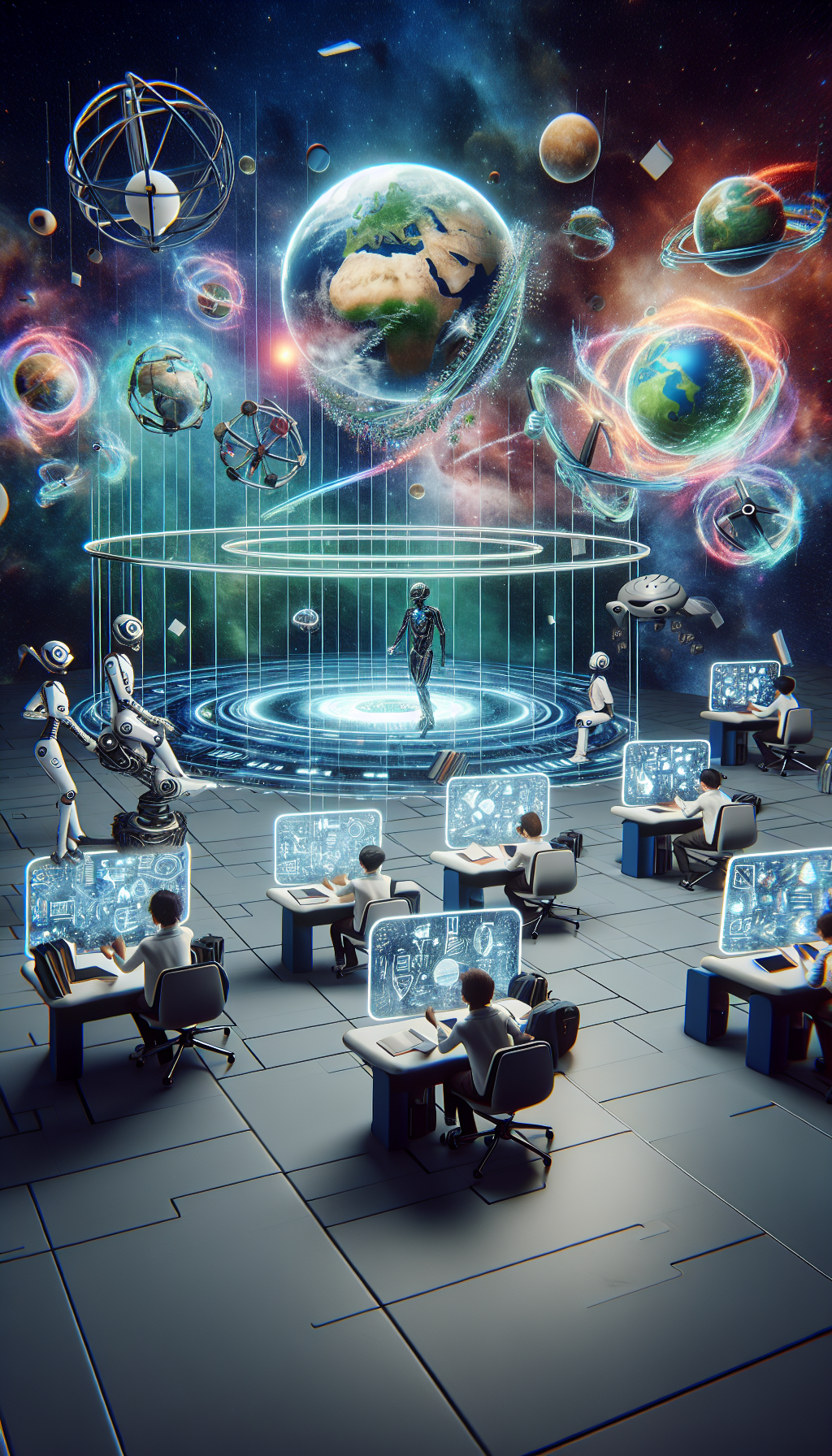
As we continue to evolve in an ever-changing world, education is not immune to the shifts taking place.
With the rapid advancements in technology, the classrooms of today are paving the way for a more tech-driven, innovative, and flexible educational future.
The digital transformation of education is powered by various technologies, including Virtual Reality (VR), Artificial Intelligence (AI), and Machine Learning (ML). These technologies are transforming the learning environment, making it more interactive and personalized. Let’s delve deeper into how these technologies are shaping the future of education.
Virtual Reality (VR) in Education
Virtual Reality (VR) has made its way into the classroom, enhancing the learning experience for students worldwide. VR offers immersive, 3D experiences that make learning more engaging and fun.
For instance, imagine being able to visit the Great Wall of China or explore the solar system in a VR environment. This kind of immersive learning can help students understand complex concepts effectively and easily.
Artificial Intelligence (AI) and Machine Learning (ML) in Education
AI and ML are two technologies that are currently revolutionizing education. These technologies have the potential to make personalized learning more accessible. With AI, it’s possible for learning platforms to understand a student’s strengths and weaknesses and tailor content accordingly. This ensures that students are learning at their own pace and in their own style, fostering a more effective learning environment.
On the other hand, Machine Learning can help analyze massive datasets to identify patterns or trends.
For instance, educators can use these insights to understand individual student performance, predict learning outcomes, and ultimately improve teaching strategies.
Online Learning and MOOCs
Online learning and Massive Open Online Courses (MOOCs) have transformed the educational landscape, offering unprecedented access to high-quality education. Today, learners around the globe can access courses from prestigious institutions, irrespective of their geographical location. This democratization of education has made learning more inclusive and accessible.
The Role of Big Data in Education
Big Data is another tech trend shaping the future of education. The implementation of Big Data in education can help in tracking and improving student performance. By analyzing vast amounts of data, educators can identify gaps in learning and adapt their teaching methodologies accordingly.
While technology is playing a significant role in the evolution of education, the human element remains crucial. The role of educators is shifting from being the sole source of knowledge to facilitators of learning.
In this tech-driven educational future, teachers are more important than ever, providing guidance and mentorship to students navigating this digital learning landscape.
In embracing these technological advancements, we are moving towards a future of education that is more personalized, inclusive, and efficient. This digital shift is preparing today’s learners for a world where continuous learning and adaptability are essential. By harnessing the power of technology, we are not just transforming the future of education, but also shaping the minds of the future.